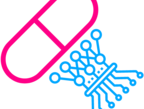AIDDT: Artificial Intelligence based Drug Design Toolkit
- 0 Collaborators
AIDDT is an automated pipeline for drug design with generative artificial intelligence and helps you optimize drug molecules, create high-quality molecular libraries and develop effective treatments faster. ...learn more
Project status: Published/In Market
Groups
Student Developers for AI,
DeepLearning,
Artificial Intelligence India
Intel Technologies
MKL
Overview / Usage
To learn more about AIDDT, click here.
Drug discovery is a complicated process that requires huge investments in time and money. Potential drug candidates have to be selected and screened for their potentiality is materializing as a practical cure. After this process is completed, these drugs undergo a huge amount of testing on animals and human volunteers. It is currently estimated that to develop a single drug, $2.6 billion (U.S.D), and a period of >10 years is required. However, there are many patients who suffer from complex diseases and would benefit from a faster pace in the lab-to-drugstore transition process.
The platform, called AIDDT (Artificial Intelligence-based Drug Design Toolkit), is a platform which uses generative artificial intelligence, combined with computational chemistry analytics to optimize drug candidate molecules iteratively. We are currently working on designing potential drug candidates for the coronavirus. To contact us please visit our main page: https://aiddt.de and to learn more about our methods, visit here: https://aiddt.de/how-it-works
Methodology / Approach
Our process is methodical and data-oriented:
- Setting up the pipeline: A customized pipeline is initialized, specific to your problem. This pipeline contains the self-learning generative AI framework. This framework consists of smaller AI-based modules, which work together to generate, analyze, and perform target-specific optimization.
- Optimizing and generating potential drug-molecules: The generative AI will then start generating potential candidate molecules in this stage. After generating a library of molecules, another AI subsystem will analyze the library, determining how well the candidates perform based on problem-specific metrics. The generative AI takes these metrics into account and uses them to become better at the task of designing better candidate molecules.
- Iterative Improvements: The optimization and generation procedure is performed over multiple stages, with each stage optimizing the designs presented in the previous stage while generating novel designs at the same time. By iterating over the previous designs, the designed molecules will be optimized for the specific target of interest.
Technologies Used
- Python
- HTML
- CSS
- Intel optimized libraries for AI
Repository
https://github.com/ritabratamaiti/Chem-Faiss




